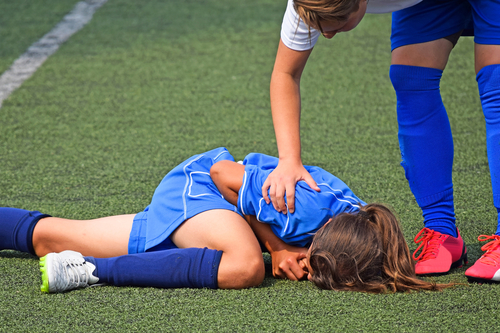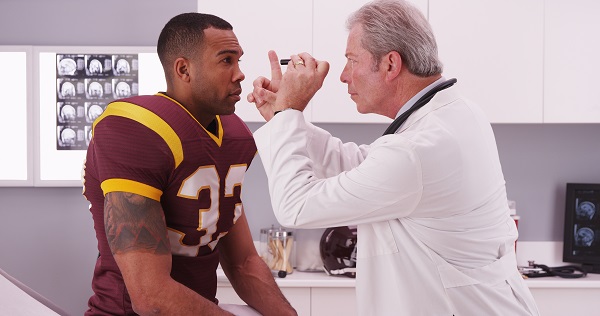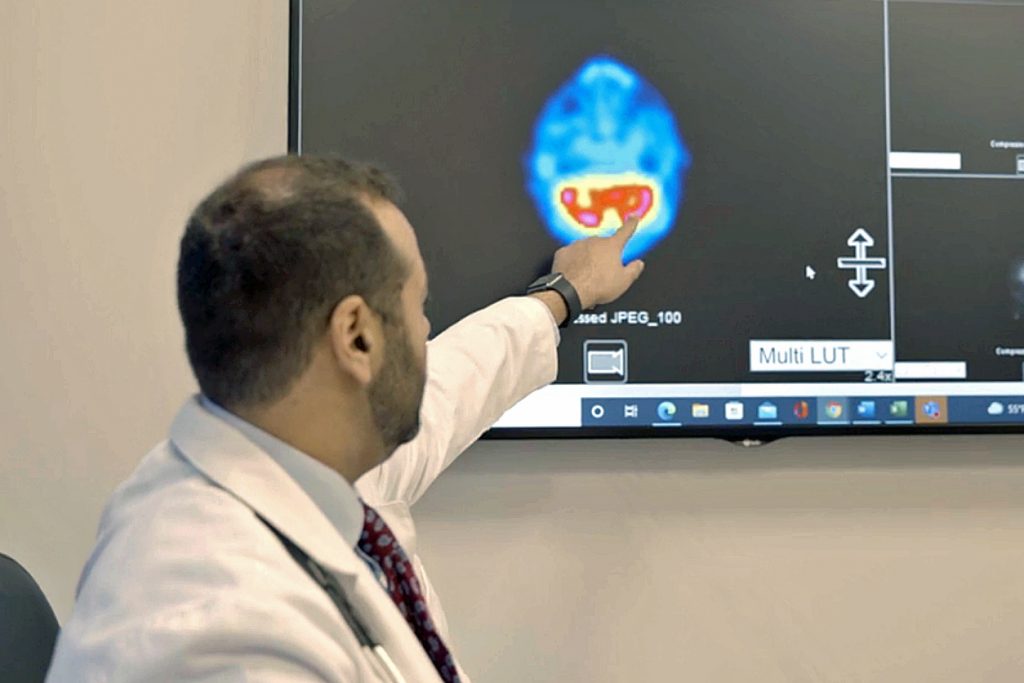Your Health Is Your Wealth: The Importance of Investing in Your Health
The daily choices we make and the activities we engage in impact our quality of life. While health problems and expenses might be an expected norm with age, there are ways you can minimize or even avoid them altogether.
At Aviv Clinics Dubai, we believe making more conscious decisions today will give you the healthspan you deserve. Learn the importance of investing in your health and nine ways to get started.
Note: Speak to your doctor before you pursue any lifestyle changes.
1. Consider the MIND Diet
Eating healthy has been a consistent mantra over the years, and for good reason—there is a connection between diet and disease. A healthy diet is the foundation for feeling good.
While there are numerous diet trends out there, there is one truly worth your time and investment—the MIND diet.
The Mediterranean-DASH Intervention for Neurodegenerative Delay (MIND) diet is a blend of two highly effective diets:
- Mediterranean: Consists of a heart-healthy eating plan
- DASH: Aims to address hypertension or high blood pressure
Studies illustrate the MIND diet is “associated with reduced incidence of Alzheimer’s disease.”
Sticking to this diet that entails a variety of fruits and vegetables provides anti-inflammatory effects on the brain. This impact can strengthen brain cell structure and help regulate anxiety and mood.
2. Engage in Intermittent Fasting
We know—fasting doesn’t sound like the most exciting thing. But consider intermittent fasting. Not only can you achieve a healthy body composition, but you can also improve your brain health—all without strict dietary restrictions.
Intermittent fasting is a dietary lifestyle that comprises alternating periods of eating and fasting and limiting the number of hours you consume calories during the day/week.
This metabolic switching:
- “Promotes neuroplasticity and resistance of the brain to injury and disease”
- May “decrease the progression of Alzheimer’s disease in mice through changes to the gut microbiota”

3. Stay Educated on Fall Prevention Tactics
“Falls in older adults are a reasonably common occurrence.” Conditions that become prevalent as we age (e.g., muscle weakness, osteoporosis, and balance and gait problems) make us more susceptible to falls.
The key ingredient to prevention? Exercise. This entails:
- Strength training
- Cardio training
- Balance training
- Flexibility training
Other fall prevention tactics are just as important.
- Keep your home clear of clutter and trip hazards such as cords, books, shoes, etc.).
- Install grab bars in the bathroom and handrails in the hallways and stairways.
- Avoid wearing clothing that drags on the ground.
- Wear non-slip socks or shoes around the house.
- Take a pause after standing up and before beginning to walk.
4. Find Helpful Ways to Cope with Stress
Stress is inevitable, and the body and mind are biologically equipped to handle it. But sometimes, when the stress gets overwhelming, it can have adverse effects. ”Stress affects not only memory and many other brain functions, like mood and anxiety, but also promotes inflammation.”
Chronic stress can:
- Kill brain cells.
- Cause memory decline.
- Negatively impact mental health.
Whether you are grieving or dealing with a major change in your life, it’s essential to find healthy coping mechanisms for stress:
- Make time for physical activity: At Aviv Clinics, we recommend 30 minutes of exercise three days a week at a minimum. Exercise benefits the brain by releasing endorphins, helping relieve pain, and improving mood. The key is to find an activity you enjoy—this will make exercise fun and feel less like a chore.
- Be conscientious about screen time. Experts say, “The goal isn’t to eliminate screens from your life; it’s to imbue the time you spend on screens with ‘intentionality.’” When used wisely and with purpose, technology offers worthy benefits. But misusing it can cause more harm than good. Thus, stay aware and focus on balancing screen time with other activities.
- Meditate. Not only is meditation a great activity to do instead of “doom scrolling” on your screen, but meditation may promote several benefits such as “reduction of cognitive decline” and “increase in quality of life.”

5. Focus on Body Composition Instead of Weight
A low number on the bathroom scale doesn’t necessarily mean all is well. Indeed, society’s obsession with the scale can lead to problems like declining muscle mass—a condition that will do more harm than good later in life.
So toss that unhealthy relationship with the bathroom scale. Instead, look at your overall body composition.
For example, Aviv Clinics uses the seca scale to get a precise rundown of the meaning behind a person’s weight. This scale helps us develop an accurate and customized treatment plan—losing body fat, gaining muscle, or a combination of both.
Speak to your doctor to gain a comprehensive assessment of your body composition so you can make appropriate, personalized goals.
6. Stick to a Consistent Sleep Schedule
Since the sleep hormone melatonin naturally decreases with age, it’s vital to set up healthy sleeping habits. This entails turning off all electronics an hour before bedtime and getting in bed at the same time each night. Doing so will promote natural circadian rhythms and maintain cognitive health.

7. Engage in Games
Investing in your health doesn’t have to be boring—it can include games!
That’s right, playing brain games is a fun and active way to train your brain. Researchers report “the effectiveness of cognitive intervention in maintaining cognitive health over the long-term.”
The brain functions similarly to muscles building muscle fibers after exercise—it promotes new neurons and neuronal connections after participating in games.
8. Listen to More Music
When was the last time you truly listened to music? What kinds of images and memories did it elicit?
Music offers far more advantages than helping you get through a grueling drive or setting the tone for a party. The best part is these benefits are backed by research.
Studies illustrate music can:
- Improve “cognitive function in people living with dementia, as well as quality of life after the intervention and long-term depression.”
- Reduce “measures of anxiety in a population of residential care patients with dementia.”
- Provide “better sleep quality” for “adults who listened to 45 minutes of music before going to sleep.
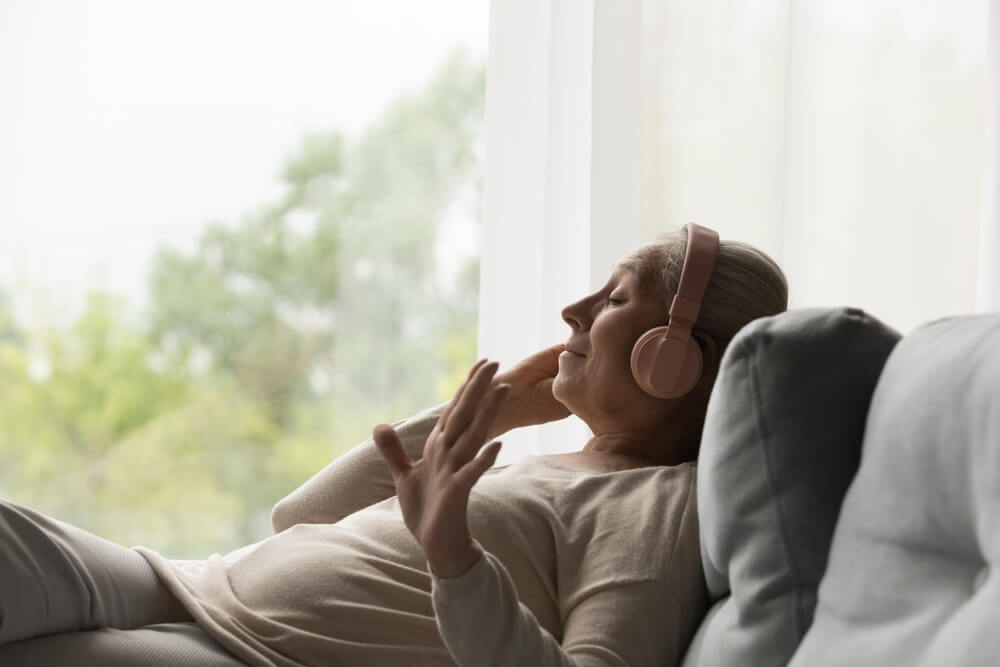
9. Find a Research-Backed HBOT Program
Hyperbaric oxygen therapy (HBOT) is a treatment in which the patient breathes 100% pure oxygen in a pressurized chamber. Aviv’s luxury, state-of-the art hyperbaric oxygen therapy suites are the largest and most advance in Dubai and the surrounding region.
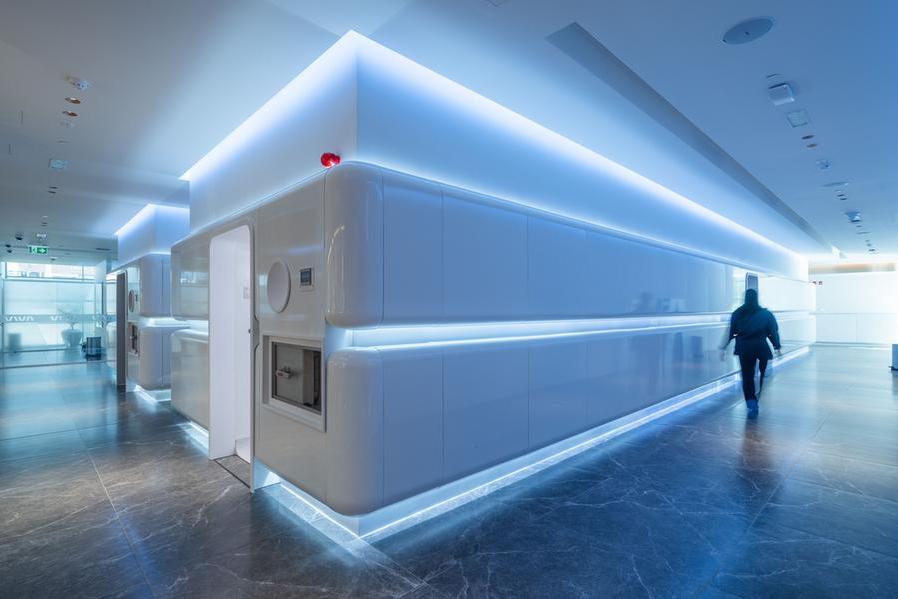
Several studies illustrate the potential of HBOT in improving cognitive, physical, and psychological performance when administered in a specific protocol. Aviv Clinic’s HBOT protocol fluctuates oxygen levels during each hyperbaric session. This system increases oxygen levels in the body up to 20 times higher than normal and boosts your brain’s ability to heal.
The unique medical program at Aviv Clinics consists of a treatment program that include this same research-backed HBOT protocol along with cognitive training, dietary coaching, and physical performance training in a physician-designed program tailored to each client’s needs.
This holistic approach gives each patient the personalized care they deserve for their unique health conditions. Our clients have optimized their athletic performance with HBOT and have found relief from debilitating medical conditions such as stroke and traumatic brain injury.
Couple Pursues Healthy Aging & Cognitive Decline Prevention | Bob & Laurie’s Story
Invest in Your Health at DP World’s Aviv Clinics Dubai
The Aviv Medical Program stands by a holistic treatment program that targets all areas discussed above. A series of independent clinical trials illustrate how our program helps treat the symptoms of different health conditions.
Treatment for Children and Adolescents with Traumatic Brain Injury (TBI) and PCS
Children and adolescents experiencing the effects of traumatic brain injury (TBI), post-concussion syndrome, and other brain performance problems have the opportunity for a better future with the right approach to treatment. Explore an effective treatment for TBI offered by Aviv Clinics Dubai:
Aviv Clinics Dubai Launches Highly Specialized Youth Medical Program to Assess and Treat TBI and Brain Performance Problems in Children and Adolescents
-
- The program uses Hyperbaric Oxygen Therapy (HBOT) to improve cognitive, emotional, and behavioral symptoms of youth suffering from specific brain-related issues.
-
- The new youth treatment program is backed by a first-of-its-kind study validating the Aviv HBOT protocol as an effective treatment for children suffering from persistent post-concussion syndrome.
-
- The youth program can also help improve the quality of life in children, aged between 8 to 15 years, suffering from cerebral palsy, Traumatic Brain Injury (TBI) and stroke.
- The youth program can also help improve the quality of life in children, aged between 8 to 15 years, suffering from cerebral palsy, Traumatic Brain Injury (TBI) and stroke.
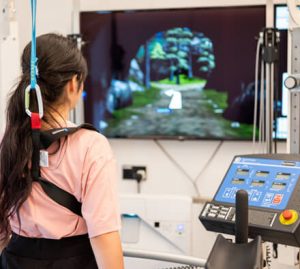
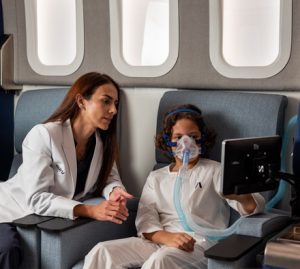
Aviv Clinics Dubai, a wholly-owned subsidiary of DP World, has opened a new wing at its JLT-based specialty brain health and performance center dedicated to a breakthrough Youth Medical Program that uses hyperbaric medicine to treat specific brain injuries in children and youth between the ages of 8 and 15.
The program specializes in the treatment of multiple disorders including cerebral palsy (a childhood motor disorder in childhood caused by brain injury due to lack of oxygen or blood supply), Traumatic Brain Injury (sudden damage to the brain caused by a blow or jolt to the head), and strokes (when the blood supply to part of the brain is cut off, because of a blockage or a blood vessel rupture).
The Aviv Youth Medical Program is the focus of a new study, published in Nature Scientific Reports, which shows the effectiveness of Hyperbaric treatment in healing damaged brain tissue and alleviating symptoms in children experiencing persistent post-concussion syndrome (PPCS), where concussion symptoms continue beyond the expected recovery period.
The study, conducted at the Sagol Center for Hyperbaric Medicine and Research at Shamir Medical Center, suggests that HBOT improves cognitive and behavioral function, as well as quality of life in pediatric patients suffering from PPCS, even years after receiving their traumatic injury.
The Aviv Youth Medical Program treatment starts with a comprehensive three-day medical, physiological, and mental assessment carried out by Aviv-certified medical staff including pediatricians, pediatric neuropsychologists, physical therapists, speech therapists, occupational therapists, and nurses. This includes the most advanced brain imaging tests suited to the child’s needs, such as perfusion MRI, and SPECT.
After analyzing the results of the in-depth assessment, children undergo HBOT sessions five days a week for 12 weeks – 60 consecutive one-hour sessions in total. Alongside the HBOT sessions, the patient will receive personalized cognitive and physical training designed to maximize the effects of the rehabilitation. At the end of the treatment, tests are repeated and compared with the results of the initial assessment.
“The diagnosis and treatment of post-concussion syndrome in children is a critical issue that physicians and researchers have struggled with, to the detriment of the children,” said Dr. Shai Efrati, Medical Director of the Sagol Center for Hyperbaric Medicine and Research and Shamir Medical Center, and Chair of Aviv Scientific’s Medical Advisory Board.
“For the first time, we have demonstrated an effective treatment for pediatric PPCS, whether the injury occurred six months or 10 years ago. This discovery and the launch of our new Youth Medical Program offers hope to thousands of families watching their children suffer from unrelenting symptoms.”
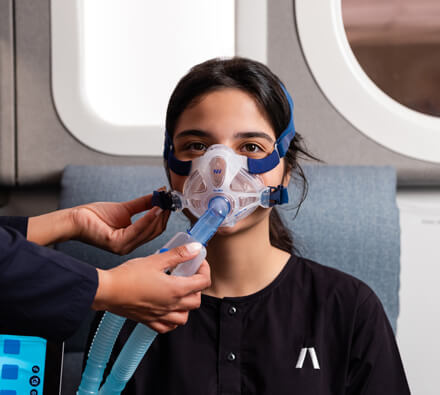
Upon completion of the study, researchers found that children treated with HBOT experienced a significant improvement in cognitive function, including the general cognitive score, memory, and executive function (ability to plan, prioritize tasks, and complete complex goal-directed behaviors), compared to the untreated children.
Other PPCS symptoms that improved include behavioral symptoms such as hyperactivity, and, perhaps most strikingly, the study revealed parallel structural brain changes, as seen on MRI, in the areas of the brain known to be affected by TBI leading to cognitive dysfunction and other symptoms of PPCS.
“Working in collaboration with DP World, we are able to bring to Dubai and the UAE medical community this highly specialized brain performance program grounded in more than 15 years of research and powered by truly state-of-the-art technology. As this study shows, we have the potential to give new hope to our young people and their families through the ability to diagnose and treat what can be debilitating symptoms of TBI, as well as other common brain disorders such as Cerebral Palsy and strokes. At the same time, we are able to contribute to advancing both Dubai’s and the UAE’s positions as global innovators and hubs for med tech and medical tourism,” said Mike Frayne, CEO of Aviv Clinics Dubai.
The same treatment protocol conducted during this study will be adopted in the youth wing at Aviv Clinics in Dubai. It will be administered under the same strict protocols, with additional comprehensive cognitive and physical training support for the various conditions and symptoms addressed by Aviv including concussion and TBI, and more. Aviv Clinic’s new Youth Medical Program is located in a dedicated wing of the 7,000-square-meter, state-of-the-art brain health and performance clinic in Dubai’s JLT.
If your child needs treatment for TBI symptoms or other brain conditions, we encourage you to learn more about the Youth Medical Program at Aviv Clinics Dubai by DP World.
5 Ways to Maintain Healthy Cognitive Ability as You Age
You want to stay sharp as you get older, we get it. Everyone hopes to age gracefully and enjoy their golden years full of new experiences and good memories. But as you know, this doesn’t always happen. Some people, as they grow in years, lose mental clarity and ability. Often this happens so gradually that it’s like watching hair grow—a loss of cognitive ability isn’t even noticed until it’s too late to do much about it.
But don’t worry, there is plenty of good news.
There are scientific, practical ways to help you maintain optimal brain health as you get older. As a health and industry leader in cognitive and physical performance, Aviv Clinics provides valuable, research-backed information to help you control your cognitive ability long into your twilight years.
5 Categories of Cognitive Skills You Want to Maintain
When we talk about cognitive ability, what we’re referring to is a set of seven skills that work together to help you in your daily life:
- Short-term memory
- Long-term memory
- Attention—sustained, selective, and divided
- Processing speed, including visual and auditory
- Logic and reasoning
Our brains can do brilliant and beautiful things! We simply need to nurture their natural abilities, so we can slow (or prevent) mental decline.
How to Improve Cognition – Follow Your Doctor’s Orders
Knowing how to improve cognitive skills is the first step toward achieving your goal of staying sharp and full of life for many years to come.
First, are you at risk of cognitive decline as you age?
- Do you have depression?
- Are you lacking sufficient mental activity?
- Are you avoiding physical exercise?
- Would your doctor consider you obese?
- Do you have high blood pressure?
- Have you been diagnosed with Type 2 diabetes?
- Are you a smoker?
To significantly lower your risk of cognitive decline, follow your doctor’s orders and incorporate these five must-have lifestyle adjustments to enhance your cognitive ability.
1. Sink Your Teeth into a Delicious Mediterranean Diet
Good nutrition goes a long way in maintaining a healthy brain and body. Studies show an association between high adherence to a Mediterranean diet and reduced risk of Alzheimer’s disease.
A Mediterranean diet entails:
Eating plenty of:
- Fruits and vegetables
- Fish and seafood
- Nuts and legumes
- Whole grains
- Unsaturated oils (extra-virgin olive oil and avocado oil)
Eating in moderation:
- Poultry
- Eggs
- Cheese
- Yogurt
Eating rarely:
- Red meat
- Refined grains
- Added sugar
- Highly processed foods
Read MIND Your Diet for Better Brain Health for some very interesting and informative guidance from an AVIV dietician, Kathryn Parker, RD, LD/N.
2. Increase Brain Metabolism through the Heart, Muscles, and Mind
Research links moderate exercise to increased brain metabolism and improved overall cognition. Exercise need not be too strenuous, but getting the heart rate up, building muscle, and pumping oxygen through your lungs and blood is very beneficial to your mental health. Physical activity can also improve heart conditions (one of the sources of cognitive decline).
Great examples of moderate physical activity include:
- Jogging or brisk walking, especially up an incline or in the sand
- Stretching morning and night
- Gardening and other household tasks
- Cycling either on a stationary bike or along a path
- Tai chi and yoga
- Playing outside with your children or grandchildren
If you’re an athlete who wants to up your game, Aviv will help you achieve your physical goals. Watch the stories of success.
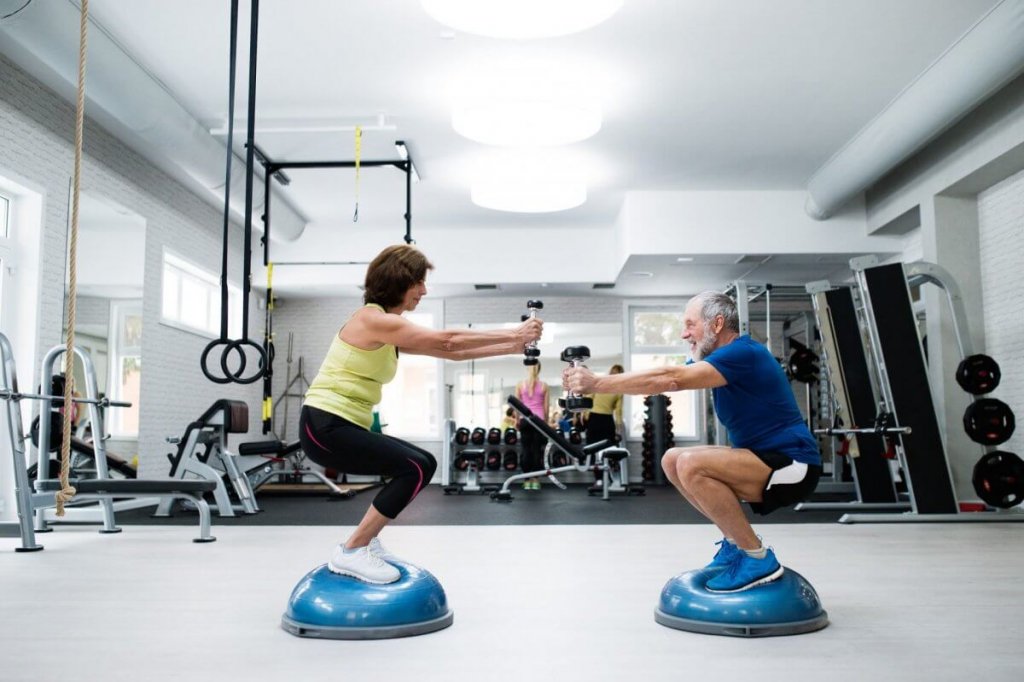
3. Don’t Let Stress Induce Deleterious Effects
If not managed, chronic stress often impairs memory retrieval and information acquisition, even inducing deleterious effects on brain structure and cognition. To help you bounce back from a stressful situation, consider:
- Engaging in physical activity
- Writing your thoughts in a journal
- Getting more sleep—it’s in the downtime that the brain flushes toxins out and cleans itself, allowing the repair you need from spikes of stress
- Doing relaxation techniques such as meditation or breathing exercises
4. Actively Build Neural Pathways
Identify hobbies or activities that keep your mind engaged. For example, one study discovered older adults who took up new body-connected activities that worked the brain in new ways experienced more memory improvement than those who did not.
Here are a few ideas when wondering how to improve your cognitive skills:
- Learn a new language and travel to where you can use it.
- Begin quilting or other detail-oriented crafts.
- Study photography, take pictures, edit them, and share.
- Try reflective therapy, like journaling, to revisit past negative memories and rewrite them more positively (“what I’ve learned” or “how it made me grow”).
- Invest (especially mentally and physically) into your child’s or grandchild’s hobby. Do they play lacrosse? Learn the rules of play and volunteer for the team. Do they have a knack for mathematics? Be their study buddy.
5. Stay in Touch with Your Trusted Physician
It’s essential to discuss cognitive decline with a trusted physician. The more you understand how your health can affect your brain function, the more you can do to safeguard your cognitive vitality. Discuss your options and advocate for yourself to get next-level care that will keep you healthier for the long term.
Fight Cognitive Decline with Aviv
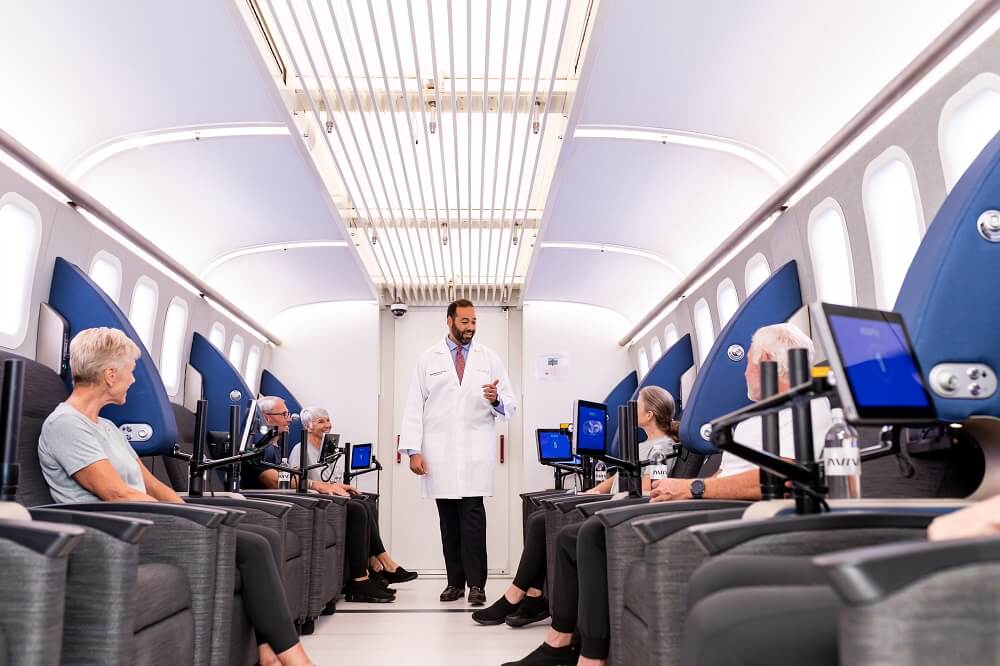
Maintaining your overall health is beneficial for the longevity of your life. Fight cognitive decline with the Aviv Medical Program. Every person’s body and health are unique, and your medical treatment program should reflect that.
Aviv is the leader in brain performance—our program will keep your brain at its best. Our diverse team of medical professionals will provide the customized attention you need to maintain optimal cognitive health and reverse cognitive decline.
Contact us to learn how we can help.
Your Comprehensive Guide to Post-Concussion Syndrome (PCS) Symptoms
If you or your loved one believes they have post-concussion syndrome (PCS), rest assured, the Aviv Clinics team is here to help. We understand how debilitating living with PCS symptoms can be. We also understand how challenging it can be to find answers and solutions.
In this comprehensive guide, you’ll find essential research-backed details intended to help you better comprehend your condition and the types of treatment options available to you. If you have any questions along the way, reach out to our team.
What Is PCS?
PCS is a condition where concussion symptoms continue beyond the expected recovery period.
According to Aviv’s medical team, when concussion symptoms last longer than two weeks, doctors will typically diagnose this as PCS.
PCS can develop after a mild, moderate, or severe traumatic brain injury (TBI) from activities such as a vehicle accident, fall, sports injury, and more.
What Are the Symptoms of PCS?
The symptoms of PCS can be divided into four categories:
1. Physical
Physical PCS symptoms are the most commonly recognized signs. Individuals with PCS may experience debilitating pain and discomfort such as:
- Headaches
- Dizziness
- Nausea
- Vomiting
- Trouble balancing
- Vision problems
2. Cognitive
Cognitive issues are often the PCS symptoms that compel patients to seek medical advice. Cognitive PCS symptoms include:
- Feeling mentally foggy
- Feeling slowed down
- Having difficulty concentrating
- Having trouble remembering
- Being forgetful of recent information and conversations
- Experiencing confusion about recent events
- Answering questions slowly
3. Psychological/Emotional
Psychological and emotional symptoms can often be difficult to identify and associate with head injuries. Many people tend to overlook these emotional changes when in reality, these changes can be a manifestation of PCS. These psychological/emotional changes include:
- Irritability
- Sadness
- Nervousness
- Anxiety
- Depression
- More emotional in general
4. Sleep
Last but not least, PCS symptoms can manifest in your sleeping patterns. For example, those with PCS may:
- Feel drowsier than normal
- Sleep more than usual
- Sleep less than usual
- Have trouble falling asleep
If you are experiencing PCS symptoms, contact our team of certified medical professionals today.
PCS Symptoms: Why and How They Happen
When someone experiences a traumatic brain injury (TBI), this blow or jolt to the head makes the head and brain move back and forth rapidly causing sheer force trauma to connective blood vessels and cells in the brain. This sudden movement can:
- Disrupt blood flow to specific brain regions
- Trigger chemical changes in the brain
- Stretch and damage brain cells
- These activities put stress on your brain and inhibit it from functioning normally.
Where the damage takes place also plays a relevant role in the type of PCS symptoms that occur.
For example, when head trauma inflicts damage to the frontal lobe of your brain—the area that manages emotional expression, focus, attention, and memory—this may stimulate emotional/behavioral changes and cognitive shifts.
How Soon Can Symptoms of PCS Start?
Symptoms of PCS start to show weeks after concussion when a concussion or TBI survivor just isn’t getting better. Over time, symptoms may not go away or may exacerbate. Symptoms can also appear later on in life.
How Long Can Symptoms of PCS Last?
PCS symptoms can last anywhere from weeks to years. The sooner you address your symptoms and get help, the more likely you’ll be able to get back to your normal activities, and for some people, get back to your normal personality traits. There are risks of waiting too long to treat your post-concussion syndrome, which brings us to our next point.
What Are the Consequences of Waiting Too Long to Treat PCS Symptoms?
PCS symptoms can turn permanent if not addressed soon enough. According to Aviv’s team of certified physicians, usually, after three months, PCS turns into persistent PCS. And after a year, PCS symptoms can turn chronic. Keep in mind, it doesn’t matter where or how you receive your head injury—these factors do not necessarily impact the severity of your PCS.
As Dr. Mohammed Elimar, MD, FACP, states, “The brain does not discriminate over what is causing the injury, and it doesn’t really discriminate the injury itself.”
Thus, staying aware of your body is essential. Speak with a doctor if you feel anything out of the ordinary. As we noted earlier, when concussion symptoms last for over two weeks, that’s your cue to seek medical consultation.
What Are the Different Forms of Treatment for PCS Symptoms?
The good news is, there are various treatments available to help mitigate your PCS symptoms. Each method holds unique strengths that may target the specific symptoms you are experiencing.
Vision Therapy
Vision therapy involves a variety of techniques that train your visual system. Those who may benefit from this are people who experience eye pain, vision problems, dizziness, and headaches.
Clinical studies show patients who have post-concussion vision issues notice improvement after participating in vision therapy.
Neuro-Optometric Rehabilitation (NOR)
Neuro-optometric rehabilitation (NOR) therapy uses therapeutic prisms, lenses, and filters to stimulate parts of the brain that are not functioning properly. Those suffering from visual injuries and complications may find relief through NOR.
There is growing evidence NOR can enhance visual skills and reduce post-concussion visual symptoms.
Physical Therapy (PT)
Physical therapy (PT) is a form of care that aims to ease pain and help you move and live better. This may include massage, range of motion stretching, exercises, and heat treatments.
PT may be good for those who struggle with physical symptoms of PCS. One small study where participants averaged 6.8 PT sessions reported that their physical symptoms became more manageable after treatment.
Cognitive Behavioral Therapy (CBT)
Cognitive behavioral therapy (CBT) is a psychological treatment that addresses problems such as depression and anxiety. CBT generally strives to change thinking and behavioral patterns. Studies indicate CBT may be an effective treatment method for improving anxiety and depression in those with TBI.
Neuropsychology
Neuropsychology is a subset of psychology that focuses on how the brain and nervous system influence your thoughts and behaviors. It takes an educational approach, teaching patients about their minds and engaging in unique exercises.
Neuropsychology may be ideal for those with memory and concentration issues as well as anxiety and depression. Research notes neuropsychology may play a vital role in helping better understand the link between the area of injury in the brain and their PCS condition.
Hyperbaric Oxygen Therapy (HBOT)
Hyperbaric oxygen therapy (HBOT) is a treatment method that increases oxygen levels in the brain and body.

Here’s how HBOT works:
- Patients enter a room called a hyperbaric oxygen chamber, or suite, and receive treatment for one to two hours. In this suite, the air is pressurized 10 – 15 times higher than normal air levels.
- Patients breathe in 100% pure oxygen via a mask while in the suite.
- Patients keep the oxygen mask on for 20 minutes and then spend five minutes with the oxygen mask off.
Studies illustrate that HBOT delivered in this way encourages neuroplasticity—the ability of the brain to modify and adapt based on environmental interactions—essentially rewiring itself, which may:
- Repair chronically damaged brain functions and tissues
- Improve the overall quality of life for patients with PCS
Additional research shows HBOT can significantly improve “memory, executive functions, information processing speed, and global cognitive scores.”
For more research insights, explore the data and studies conducted by The Sagol Center.
Aviv Clinic’s Treatment for PCS Symptoms
Aviv’s Medical Program takes a holistic approach that encompasses several of the areas we discussed above. We leverage the expertise of a diverse team of medical professionals based on your health assessment.
Aviv takes a three-step approach:
- In-depth medical assessment: We start with a comprehensive health assessment with advanced brain imaging exams (perfusion MRI, fMRI, SPECT, etc.). The goal is to attain a holistic and accurate understanding of your mind and body and to map a treatment plan that will maximize the program’s results.
- Tailored treatment program: The Aviv medical team will craft a personalized treatment program based on your medical assessments. This may entail brain and physical training, HBOT sessions, and a nutritional regimen. The goal is to maximize your body’s healing process.
- Post-treatment assessment: The Aviv team will repeat the medical assessment to measure your progress and make relevant recommendations moving forward.
Benefits of our program include improved:
- Cognitive and motor functioning
- Physical performance (fitness, strength, coordination, balance)
- Immune system
- Stem cell growth (the building blocks of tissue rejuvenation)
- Neuronal blood flow
At Aviv, our multidisciplinary medical team of physicians, neuropsychologists, physiologists, physical therapists, dieticians, and more ensures you’re provided with the thorough medical treatment you deserve.
The Bottom Line
Before you pursue a treatment plan, keep three things in mind:
- Speak with a physician first about your symptoms and health history. This can help them gain a comprehensive assessment and provide a personalized treatment plan.
You can speak to an Aviv physician at the clinic or over a virtual meeting, for free. - Be patient. Finding the right combination of therapies that work for you may take some time, but don’t give up. With the right medical program, you can receive the holistic treatment you deserve and find some relief.
- TBI and concussion can affect everyone of all ages. Thus, there is no standard/solid timeline for recovery. It may take a few weeks or more to see improvement.
- Read about using HBOT to address TBI and concussion.
Feel Your Best with Aviv
There is hope. If you feel you’ve been experiencing symptoms of PCS, contact Aviv Clinics. We’ll put you in touch with our certified team of physicians who can help craft a customized plan to aid in your healing process. Focused on service, safety, and comfort, Aviv Clinics is your first stop in getting back to optimal health and back to life.
Hyperbaric Oxygen Therapy (HBOT) Options for Stroke Recovery
Stroke Recovery
Stroke prevalence has spurred scientists to develop more effective stroke recovery therapies, including hyperbaric oxygen therapy (HBOT).
Recovery from an ischemic or TIA (“mini stroke”) may not be guaranteed, but this much is clear: people who receive timely and effective treatment recover with fewer post-stroke effects.
Unfortunately, timely treatment is not always attainable:
- Stroke is a “leading cause of death in the United States and is a major cause of serious disability for adults.”
- “More than half of stroke survivors age 65 and older” experience reduced mobility, relegating some individuals to a wheelchair for the remainder of their lives. Many struggle with cognitive function, speech difficulties, and visual impairments as well.
Thankfully, advanced rehabilitation programs exist, including hyperbaric oxygen therapy (HBOT) options and other therapies. The experts at Aviv Clinics discuss these key details below.
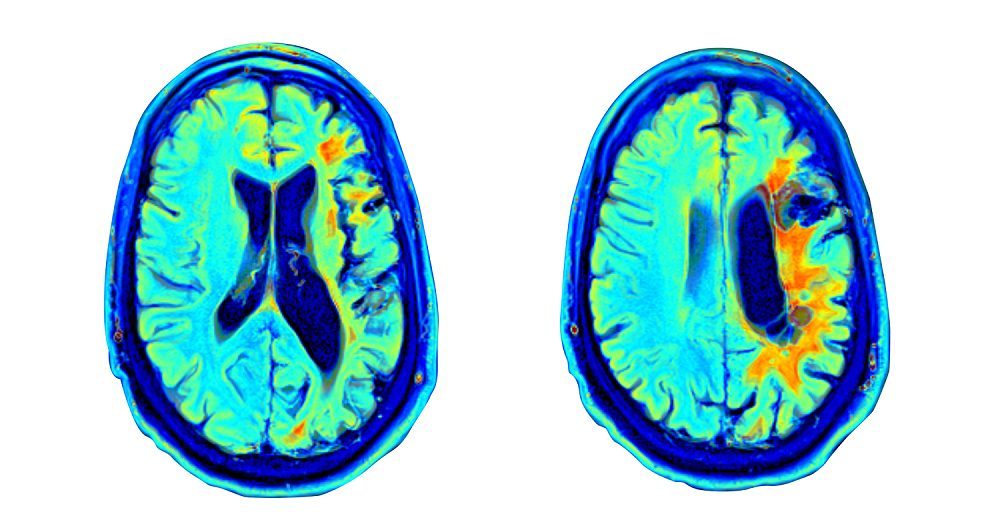
What Happens to the Brain during a Stroke?
When a stroke strikes, it immediately starts killing brain cells due to loss of blood flow. As many as two million brain cells die each minute the stroke goes untreated. Other cells become injured but don’t necessarily die off. Neurologists often describe them as being “stunned”.
Still, a significant part of the brain’s real estate comes under attack. The combined damage from injured and necrotic (dead) brain cells results in both immediate and long-term symptoms such as:
- Limb weakness or paralysis
- Slurred speech
- Vision complications
- Balance issues.
Nothing can be done about the dead brain cells, which is why timely intervention is so critical. However, a growing body of research indicates that HBOT can help repair the injured cells, even years after the initial stroke
What Is Hyperbaric Oxygen Therapy (HBOT)?
Hyperbaric oxygen therapy (HBOT) is a type of therapy that uses pressurized chambers to allow individuals to breathe in 100% pure oxygen.
In the hyperbaric suites at Aviv Clinics, the air is pressurized in the HBOT chamber to above atmospheric levels. This environment increases oxygen levels in the body to about 17 times higher than normal, allowing oxygen to be delivered even to damaged cells, such as those injured by stroke.
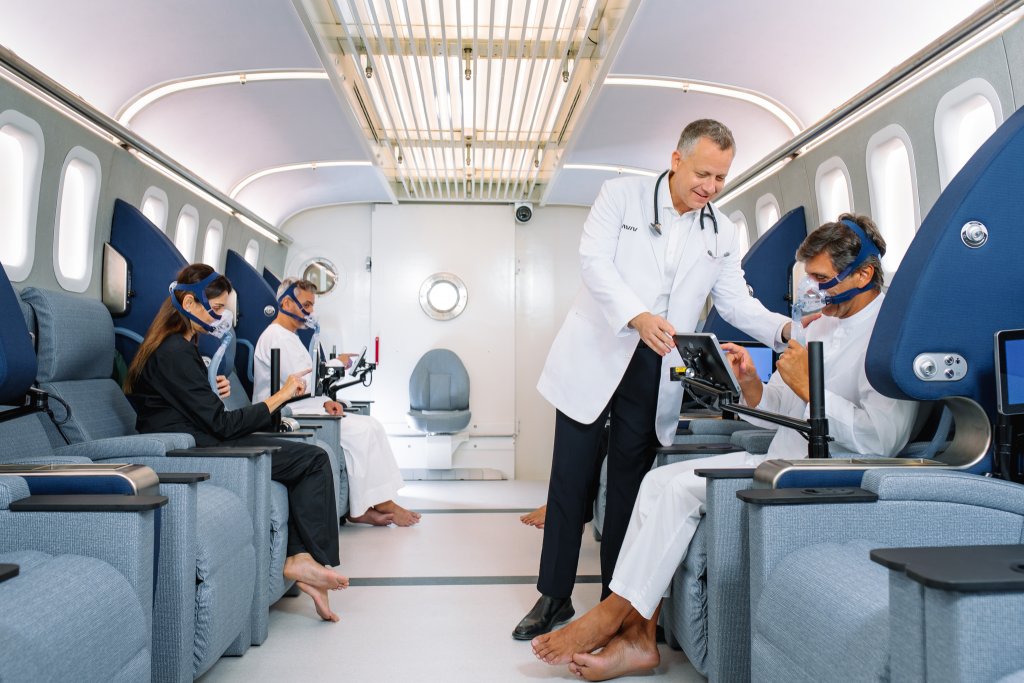
How Does HBOT Help with the Post-Stroke Recovery Process?
The unique HBOT protocol at Aviv Clinics uses a scientifically validated process in which oxygen levels are fluctuated throughout the HBOT session. When the mask is on, oxygen levels are very high. But, when the mask is off, the body is deceived into sensing a state of “low” oxygen because of the rapid decline.
This fluctuation triggers the body into repair and regeneration mode, which in turn:
- Stimulates stem cell proliferation
- Improves injured cell health
- Builds new blood vessels, optimizing blood flow
- Grows new connections in the brain
In the past, growing those new connections was inconceivable. Scientists previously believed that once neurons were destroyed, they could never rebound. Research has since disproved that notion.
What Benefits Can Stroke Survivors Achieve with HBOT?
Several studies have proven the benefits of using HBOT in post-stroke recovery. Repair mechanisms in the brain, prompted by HBOT, result in:
- Regained speech and reading capabilities
- Restored motor function, even with paresis
- Return to independence in performing daily activities
The Aviv Medical Program
When combined with the exercise, personalized nutrition, and extensive assessments that are part of the Aviv Medical Program, the outcomes become even more impressive:
- Some Aviv clients progress from using wheelchairs to walking on their own or with an assistive device.
- Clients who lost their ability to speak make immense recovery strides.
- Many report that the biggest benefit is simply not being a “burden” on their loved ones.
Our post-stroke program remains focused on research and incorporates a holistic and personalized approach that can include the following:
- In-depth review of health history
- Comprehensive physical exam
- Highly advanced brain imaging scans
- Neurological and neurocognitive tests
- Body composition analysis
- A detailed report of our assessment findings
- Cognitive training
- Physical training
- Dietary coaching
- Hyperbaric oxygen therapy (HBOT)
- A post-treatment report of your improvements and recommendations for future progress
Learn more about the program>>
Even if a person has no visible effects after having a stroke, the brain has still been damaged—and they are at a higher risk for a subsequent stroke. HBOT, through the Aviv Medical Program, can help mitigate that risk by improving the flow of blood to brain tissue and potentially prevent future strokes from occurring.
How Soon after a Stroke Can Hyperbaric Oxygen Therapy Be Administered?
Aviv Clinics recommends a 3-6 month wait after a stroke before beginning the Aviv Medical Program protocols. This allows for the brain’s natural healing progression to take hold.
The sooner stroke survivors act after the post-acute stage, the better. The research our scientists have done indicates a strong cohort from the one-month point to four years post-stroke.
That said, there’s really no limit on how long after a stroke individuals can participate in the program. We’ve seen success in clients who were as many as 10 years into their stroke recovery.
How Long Does It Take to See Results?
Most people see improvement from the Aviv Medical Program within the 8-12 weeks of therapy and medically verifiable results by the end of their treatment.
But keep in mind, no one-size-fits-all approach exists. You’ll receive your own unique therapy plan, so outcomes and timelines vary. Our ability to quantify your health plan is ultimately what delivers results.
For reference, here is a general overview of what our program looks like:
- Step 1: Assessment—A comprehensive set of neurocognitive, physical, and genomic assessments.
- Step 2: Treatment—Based on the assessment, we develop a customized routine that can include hyperbaric oxygen sessions with other types of personalized training/therapies. These may take place over 12 weeks.
- Step 3: Analysis—Our team uses advanced analytics to assess your program’s efficacy, and make the necessary adjustments.
- Step 4: Follow up—The Aviv Clinics team will offer ongoing monitoring and engagement post-treatment to help maintain your results.
Keren Trabelsi Finds Hope after Her Stroke
“[Treatment at Aviv is] like driving a Ferrari on the road to recovery versus driving like an old beaten-up car….”
Former Aviv Clinics client Keren underwent an ischemic stroke. This caused cognitive issues and paralysis on the left side of her body. Daily tasks grew more difficult, which left her feeling defeated.
Fortunately, Keren found the Aviv Medical Program. Aviv Clinics provided a personalized treatment plan encompassing many of the therapies we outlined earlier.
Thirteen months later, Keren can walk comfortably, type with her left hand again, and engage in a myriad of activities (crossword puzzles, Sudoku, etc.) she couldn’t participate in after her stroke.
The Bottom Line
Stroke survivors no longer need to feel like life is over due to debilitating cognitive and physical impairments. The Aviv Medical Program is rooted in extensive scientific research and has been instrumental in helping stroke survivors thrive well into their golden years.
Contact us to learn more about the Aviv Medical Program and how it can benefit you or a loved one.
Schedule a free consultation>>
Hyperbaric Oxygen Therapy Decreases Chronic Pain Associated with Fibromyalgia
Fibromyalgia is a chronic complaint commonly associated with musculoskeletal pain fatigue, non-restorative sleep, and other symptoms impacting on mood and memory, Fibromyalgia affects approximately ten million Americans. Globally, estimates range between 3% and 6%, predominantly women.
Enduring pain disorders, and Fibromyalgia specifically, result from a defective nervous system. Fibromyalgia is not congenital; instead, symptoms develop over time, often as a reaction to external influences including infection, physical trauma, or emotional factors. However, it is unclear and frequently impossible to determine what activates the condition.
HBOT as Therapy for Fibromyalgia
Fibromyalgia doesn’t directly impact the muscles or joints; rather, it affects the manner nerves interpret and communicates pain messages to the brain. Consequently, pain thresholds are much lower, complicating effective treatment. In the absence of physical therapy such as fixing a torn tendon, the standard therapeutic reaction is to treat these ailments pharmaceutically. However, non-prescription pain relievers aren’t sufficiently strong enough to effectively provide relief. Prescription pain relievers, including opioids, decrease in their effectiveness over time and carry many other risks, not least addiction.
In the search for non-pharmaceutical solutions, hyperbaric oxygen therapy (HBOT) is being investigated as a potential treatment for chronic pain complaints. The Canadian Agency for Drugs and Technologies in Health (CADTH), an autonomous agency charged with sourcing, reviewing, and précising clinical research into new medicines and medical devices. Recently, the Agency published a detailed study HBOT as a potential therapy for chronic pain in adults.
The resultant article “Hyperbaric Oxygen Therapy for the Treatment of Chronic Pain: A Review of Clinical Effectiveness and Cost-Effectiveness,” CADTH examined multiple studies. Sixty women with Fibromyalgia were examined in one study. They were treated with HBOT sessions of five days 12 weeks. It determined that HBOT therapy elevated pain increased pain thresholds and other quality of life indicators whilst lowering the quantity on of tender points and emotional stress. Following treatment, single-photon emission computed tomography (SPECT) imaging showed that parts of the brain that had previously revealed abnormalities had normalized.
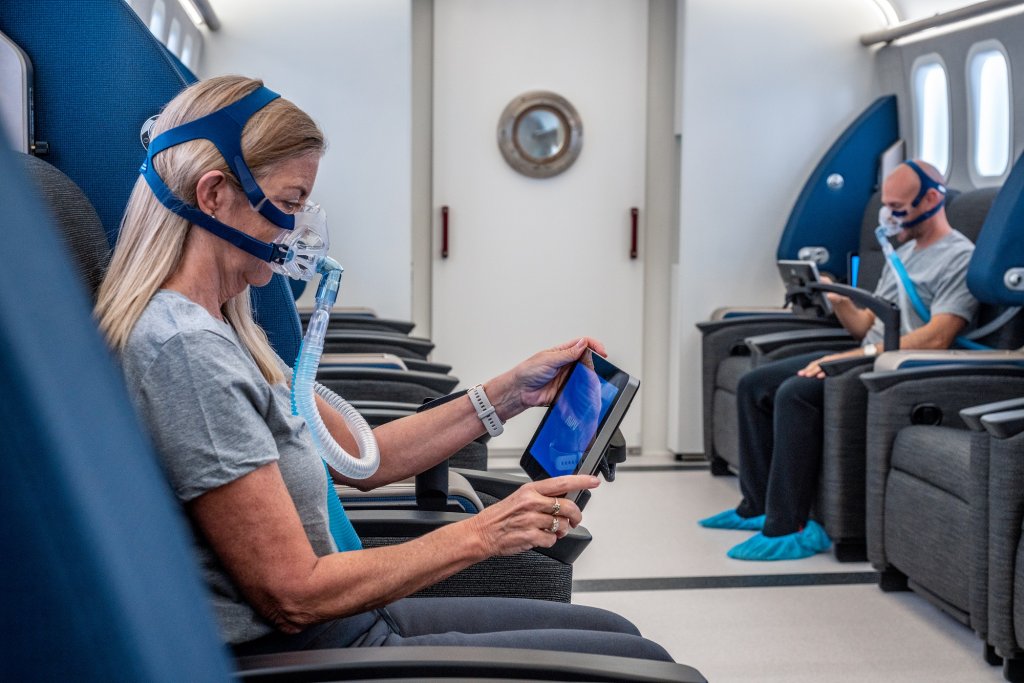
Hyperbaric Oxygen Therapy (HBOT) a potential treatment for chronic pain.
A different study assessed 30 myofascial pain syndrome sufferers — an acute pain disorder affecting the muscles and connective tissues. These patients were treated with HBOT sessions five days per week for only a fortnight. Notwithstanding this brief timeframe, HBOT boosted pain thresholds whilst decreasing physical and mental dysfunctions.
The data was uncertain concerning the cost benefits. Though the CADTH report was equivocal as to the cost-effective of HBOT over prescription pain killers, there was much greater certainty that HBOT is the safer of the two.
The limited period of these studies of HBOT therapy means that more extensive research is needed to explore further potential and confirm the conclusions. Early indications, however, were very encouraging.
